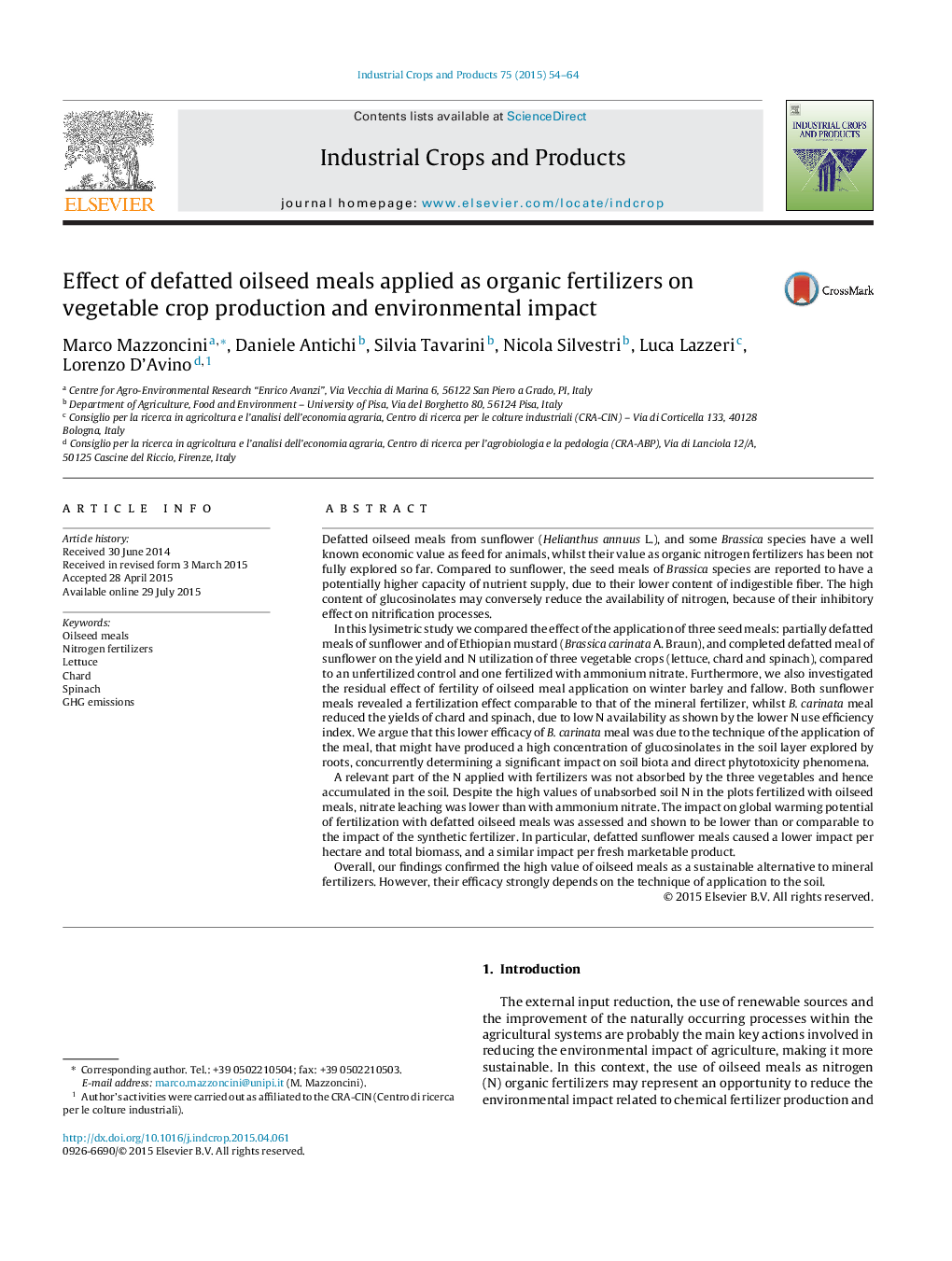| کد مقاله | کد نشریه | سال انتشار | مقاله انگلیسی | نسخه تمام متن |
|---|---|---|---|---|
| 4512805 | 1322171 | 2015 | 11 صفحه PDF | دانلود رایگان |
• Vegetables amended with DOMs yielded similar to fertilized control.
• Among DOMs Brassica produced the weakest effect on yields, due to slower N release.
• No difference in N use efficiency of crops amended with oilseed meals were observed.
• Oilseed meals reduced the risk of nitrate leaching compared to mineral fertilizer.
• Trials fertilized with DOMs generally revealed lower impact than mineral fertilized.
Defatted oilseed meals from sunflower (Helianthus annuus L.), and some Brassica species have a well known economic value as feed for animals, whilst their value as organic nitrogen fertilizers has been not fully explored so far. Compared to sunflower, the seed meals of Brassica species are reported to have a potentially higher capacity of nutrient supply, due to their lower content of indigestible fiber. The high content of glucosinolates may conversely reduce the availability of nitrogen, because of their inhibitory effect on nitrification processes.In this lysimetric study we compared the effect of the application of three seed meals: partially defatted meals of sunflower and of Ethiopian mustard (Brassica carinata A. Braun), and completed defatted meal of sunflower on the yield and N utilization of three vegetable crops (lettuce, chard and spinach), compared to an unfertilized control and one fertilized with ammonium nitrate. Furthermore, we also investigated the residual effect of fertility of oilseed meal application on winter barley and fallow. Both sunflower meals revealed a fertilization effect comparable to that of the mineral fertilizer, whilst B. carinata meal reduced the yields of chard and spinach, due to low N availability as shown by the lower N use efficiency index. We argue that this lower efficacy of B. carinata meal was due to the technique of the application of the meal, that might have produced a high concentration of glucosinolates in the soil layer explored by roots, concurrently determining a significant impact on soil biota and direct phytotoxicity phenomena.A relevant part of the N applied with fertilizers was not absorbed by the three vegetables and hence accumulated in the soil. Despite the high values of unabsorbed soil N in the plots fertilized with oilseed meals, nitrate leaching was lower than with ammonium nitrate. The impact on global warming potential of fertilization with defatted oilseed meals was assessed and shown to be lower than or comparable to the impact of the synthetic fertilizer. In particular, defatted sunflower meals caused a lower impact per hectare and total biomass, and a similar impact per fresh marketable product.Overall, our findings confirmed the high value of oilseed meals as a sustainable alternative to mineral fertilizers. However, their efficacy strongly depends on the technique of application to the soil.
Journal: Industrial Crops and Products - Volume 75, Part A, 30 November 2015, Pages 54–64
